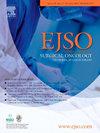利用自动机器学习从临床特征和风险组预测结肠癌预后:一项回顾性队列研究
IF 2.9
2区 医学
Q2 ONCOLOGY
引用次数: 0
摘要
背景预测结肠癌复发对于确定根治性切除后是否需要辅助治疗至关重要。然而,临床决策往往依赖于有限的特征,即使有大量的数据可用。方法利用某三级医院结肠癌患者的临床特征、病理特征和血液标志物,评估自动机器学习(AutoML)模型在预测患者预后方面的临床应用。我们还将这些AutoML模型与人工训练和调整的模型进行了比较,并评估了生存预测。结果:我们发现线性模型和集合模型的性能相当,预测的预后与总生存期和无病生存期结果显著相关。可解释的机器学习模型将T和N分期确定为重要特征,并强调预后免疫和营养指数(PINI)是有意义的生物标志物。XGBoost模型在不同医院的独立测试集中预测预后的AUC为0.798,证明了模型的互操作性。此外,该模型能够区分将受益于辅助化疗的IIA期患者,这对临床医生来说是一个复杂而困难的决定。我们还表明,简化的模型通常保持预测的准确性,并且自动化的方法与手动管理的模型一样具有预测性。结论:通过多个测试集和内部交叉验证,本研究强调了AutoML在从常规收集的数据中识别结肠癌生存相关特征方面的潜力,为临床医生提供了个性化治疗策略的宝贵见解。本文章由计算机程序翻译,如有差异,请以英文原文为准。
Leveraging automated machine learning to predict colon cancer prognosis from clinical features and risk groups: a retrospective cohort study
Background
Predicting colon cancer recurrence is crucial for determining the need for adjuvant therapy after curative resection. However, clinical decisions often rely on limited features, even when a large amount of data is available.
Methods
We assessed the clinical utility of automated machine learning (AutoML) models to predict the prognosis of colon cancer patients from a tertiary hospital using clinical features, pathologic characteristics, and blood markers. We also compared these AutoML models to manually trained and tuned models and evaluated survival predictions.
Results
We found comparable performance between linear and ensemble models, and the predicted prognosis was significantly associated with overall survival and disease-free survival outcomes. Interpretable machine learning models identified T and N staging as important features and highlighted the prognostic immune and nutritional index (PINI) as a meaningful biomarker. The XGBoost model predicted prognosis with an AUC of 0.798 in an independent test set from a different hospital, demonstrating the model's interoperability. Additionally, the model was able to distinguish stage IIA patients that would benefit from adjuvant chemotherapy, a complex and difficult decision for clinicians. We also showed that simplified models generally maintained predictive accuracy, and that the automated approach was equally predictive as manually curated models.
Conclusion
With extensive validation through multiple test sets and internal cross-validation, this work underscores the potential of AutoML in identifying survival-related signatures in colon cancer from routinely collected data, providing clinicians with valuable insights for personalized treatment strategies.
求助全文
通过发布文献求助,成功后即可免费获取论文全文。
去求助
来源期刊

Ejso
医学-外科
CiteScore
6.40
自引率
2.60%
发文量
1148
审稿时长
41 days
期刊介绍:
JSO - European Journal of Surgical Oncology ("the Journal of Cancer Surgery") is the Official Journal of the European Society of Surgical Oncology and BASO ~ the Association for Cancer Surgery.
The EJSO aims to advance surgical oncology research and practice through the publication of original research articles, review articles, editorials, debates and correspondence.
 求助内容:
求助内容: 应助结果提醒方式:
应助结果提醒方式:


